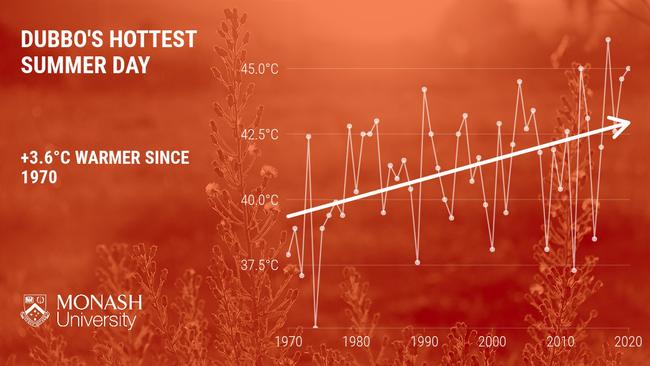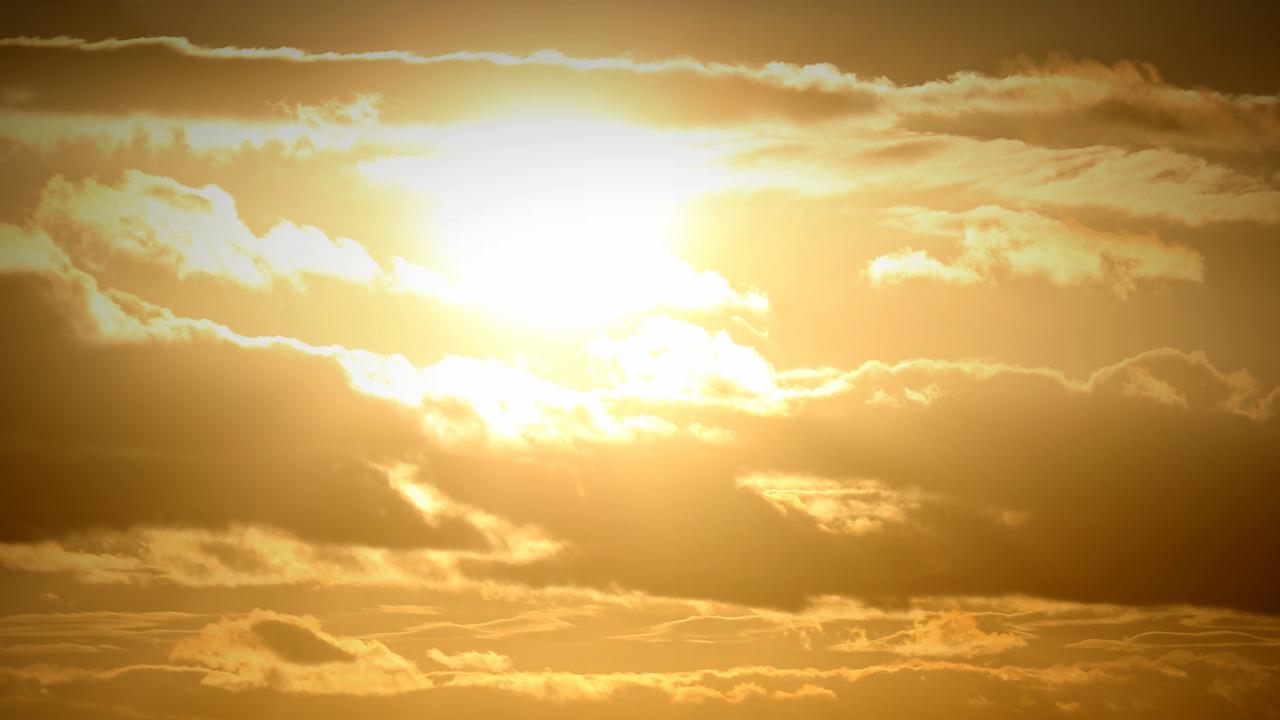Dr Sarah Perkins-Kirkpatrick discusses Dubbo's rising temperatures. Plus, local resident Val Clark shares how she is adapting to the warmer, drier climate.
Dubbo's summer climate much warmer than 50 years ago, according to BOM data

Hyperlocal
Don't miss out on the headlines from Hyperlocal. Followed categories will be added to My News.
Dubbo is in for a mostly sunny weekend in the low 30s, with light winds across both days and a chance of a thunderstorm Saturday afternoon.
Data from the Bureau of Meteorology suggests Dubbo's climate is warming.
Summer temperatures could soon become unbearable.
The hottest summer day in Dubbo is typically around 43 degrees, more than three degrees warmer than it was 50 years ago.
The hottest day last summer was even hotter, reaching a scorching 45 degrees.
Voices from your community
Dubbo resident Val Clark had noticed more than just a shift in temperature.
"We have longer drought seasons, more dust, more fires, higher humidity and fiercer, hotter summers," she said.
"In the garden I'm shading all vegetables throughout the day, watering more frequently and exploring the use of grey water.
"(I'm also) developing a native garden in the front that is water efficient."
Community voices like Val's tell us how residents and business owners in Dubbo feel about their local climate. If you would like to contribute your voice to our column, you can fill out our 5-minute survey here.
Did you know?
In the decades to come, Dubbo could endure more frequent heatwaves and unpredictable rainfall as a result of climate change.
Like Val, residents have already noticed how climate change has affected their gardens.
Some gardeners are using sustainable practices to help combat the effects of climate change.
Examples include planting native species like tallowwood and river red gum, composting, planting trees to absorb carbon dioxide, and eating homegrown fruit, vegetables and herbs to reduce emissions from transportation.
Want more information on how your climate is changing? Check out last week's article here.
Dr Sarah Perkins-Kirkpatrick is a climate scientist at the University of New South Wales.
This column is part of a collaboration between the Monash Climate Change Communication Research Hub and News Corp to deliver hyperlocal weather and climate information.
Follow the Hub on Twitter to join the conversation.


